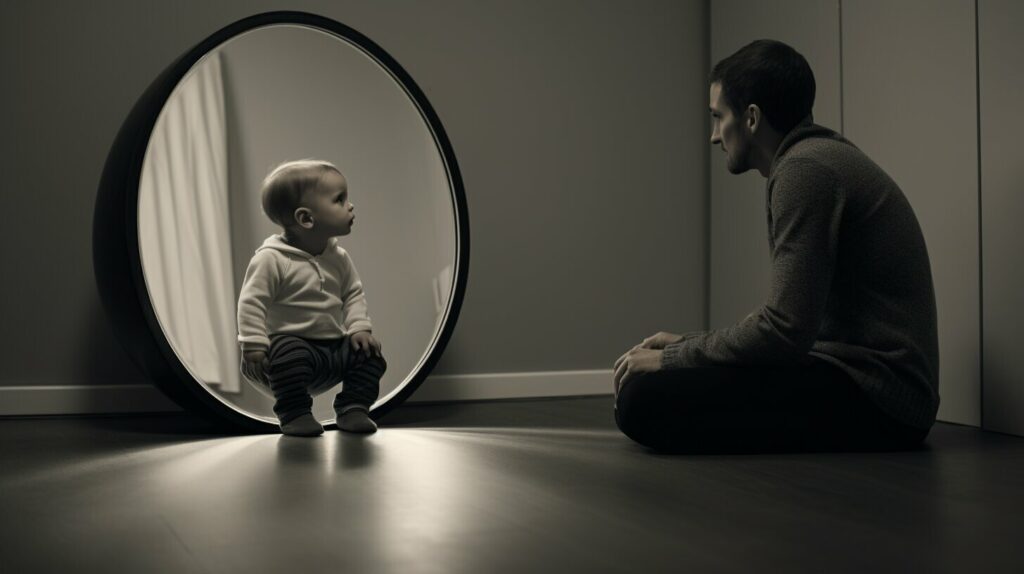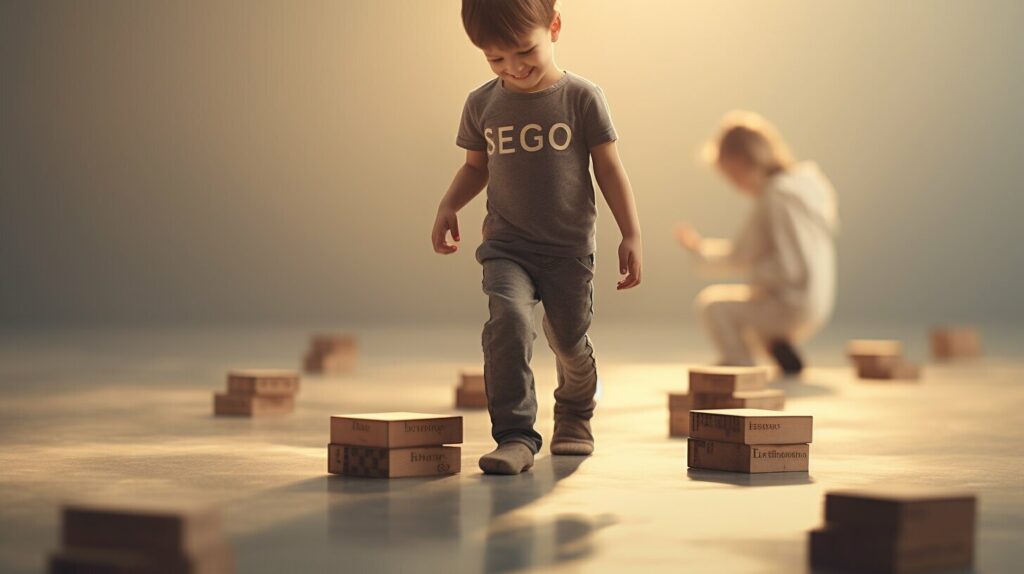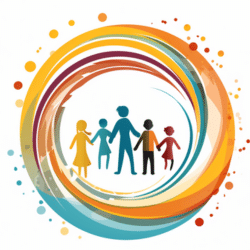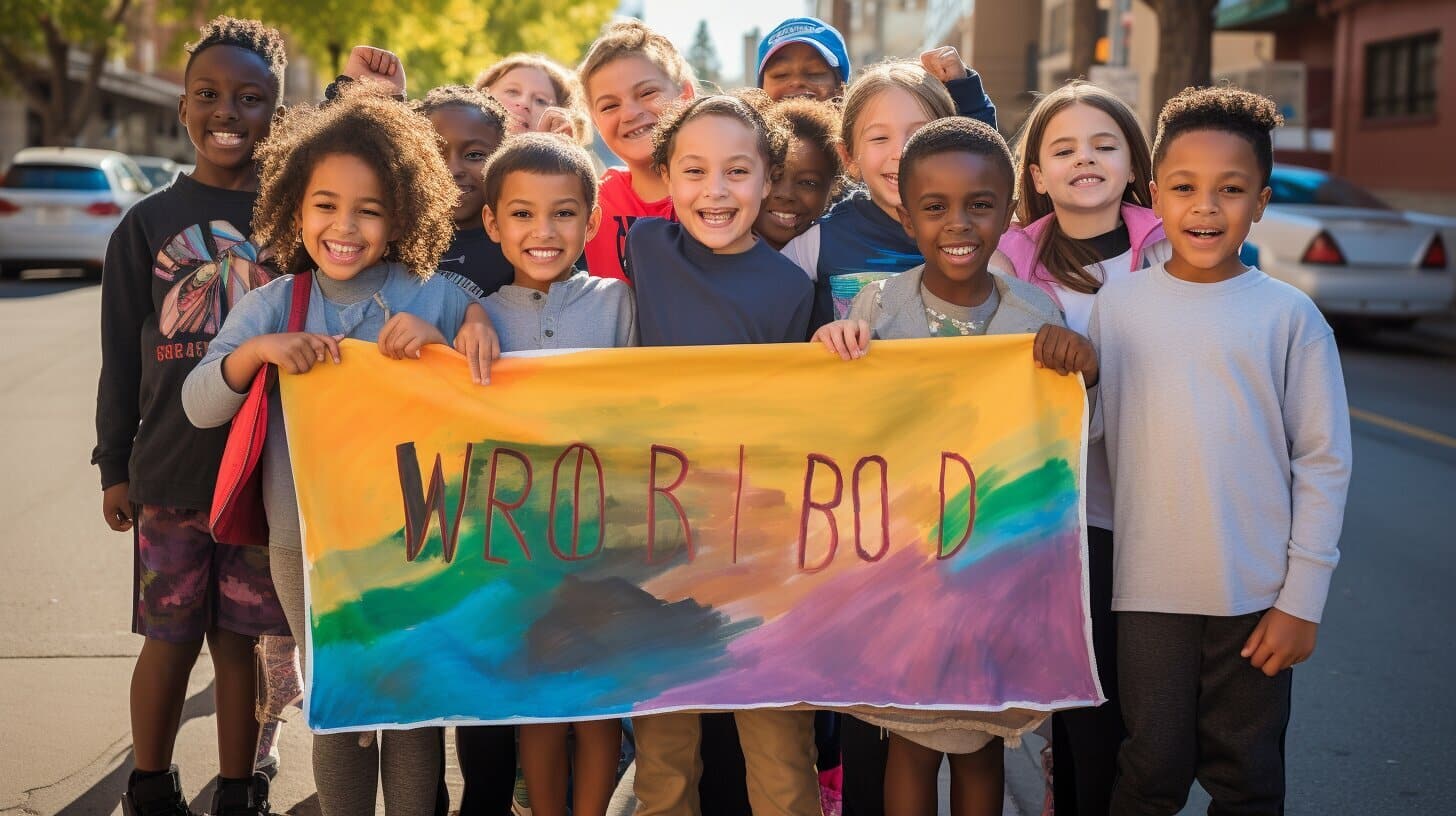As a parent or caregiver, you may be wondering how to explain ego to a child. It can be a difficult topic to tackle, as ego is a complex and often misunderstood concept even for adults. However, helping your child understand their ego can promote healthy self-awareness and positive relationships.
So, where do you start? First and foremost, it’s important to take a simple and friendly approach. Avoid using complex terminology or abstract concepts that may confuse your child. Instead, try to relate the concept of ego to their everyday experiences and interactions with others.
For example, you can explain that ego is like a voice inside our heads that tells us who we are and what we’re good at. It can make us feel confident and proud of ourselves, but it can also make us feel defensive or competitive with others. By helping your child understand their ego, you can empower them to balance their sense of self with empathy and kindness towards others.
Key Takeaways
- Explaining ego to a child can promote healthy self-awareness and positive relationships.
- Take a simple and friendly approach, avoiding complex terminology.
- Relate the concept of ego to everyday experiences and interactions with others.
- Empower your child to balance their ego with empathy and kindness towards others.

What is Ego? A Basic Definition for Kids.
Before we dive into understanding ego, let’s start with a basic definition. Ego is the part of you that thinks, feels, and has opinions about yourself. It’s like having a little voice inside your head that tells you things about who you are and how you see the world.
Everyone has an ego, and it can be both positive and negative. Sometimes it can make you feel good about yourself and give you confidence, but other times it can make you feel angry, jealous, or upset. It’s important to learn how to balance your ego so that it’s healthy and helps you feel good about yourself while also being kind and respectful to others.

Understanding Our Sense of Self: Ego Explained.
Hey there, kiddo! So, we talked about what ego is and how it can affect our thoughts and actions. But have you ever wondered why we even have an ego in the first place?
Our ego is the way we see ourselves in the world. It’s how we think about ourselves and our abilities, and it helps us navigate and interact with the world around us.
Think of it this way: our ego is like a coat we wear. It keeps us warm and protected from the elements, just like our ego helps us feel confident and secure in who we are.
But just like a coat, our ego can also become heavy and uncomfortable if we carry too much of it around. That’s why it’s important to understand our ego and how to keep it in balance.

Now, let’s pretend you’re at school and you get a bad grade on a test. Your ego might tell you that you’re not smart enough, or that you’re a failure. But that’s not true!
Your ego might be too big in that moment, making you feel worse about the situation than you need to. Instead, you can work on balancing your ego by reminding yourself that making mistakes is normal and that you can always learn and improve.
Remember, your ego is just a part of who you are. It’s important to understand it, but not to let it control you. Keep a healthy balance and you’ll feel more confident and satisfied with yourself.
How Does Ego Affect Our Behavior?
Now that you have a basic understanding of what ego is, let’s take a closer look at how it affects our behavior. Ego plays a significant role in shaping our thoughts, feelings, and actions. It can influence how we interact with others, respond to challenges, and approach new experiences.
For example, if you have a strong ego, you may be more likely to view situations as competitive and feel the need to win or come out on top. On the other hand, if you have a weaker ego, you may lack confidence and struggle to assert yourself in social or professional situations.
It’s important to note that everyone has an ego, and it’s not necessarily a bad thing. However, it’s essential to recognize when our ego is driving our behavior in unhealthy or unproductive ways.
For children, understanding how ego affects behavior can be especially helpful in promoting self-awareness and emotional intelligence. By recognizing when their ego is pushing them to act in certain ways, children can learn to take a step back and evaluate their responses more objectively.
For instance, you might explain to your child that feeling upset or angry when they lose a game is a natural response driven by their ego’s need to win. However, by acknowledging their emotions and taking a deep breath, they can learn to move past their ego-driven reaction and focus on enjoying the game itself.

How Does Ego Affect Our Behavior? Examples for Children
Here are some examples of how ego can affect behavior in children:
- A child with a strong ego might refuse to apologize or admit they made a mistake because they believe it would be admitting weakness.
- A child with a weak ego might struggle with public speaking or performing in front of others because they lack confidence in their abilities.
- A child with a healthy ego might be assertive in expressing their thoughts and feelings, but also able to listen and empathize with others.
- A child with an unhealthy ego might feel the need to constantly prove themselves or put others down to feel superior.
By helping children recognize these behaviors and understand the role their ego plays in them, you can encourage healthy self-awareness and positive social interactions.
Balancing Ego with Empathy and Kindness
It’s important for children to understand that having a healthy ego doesn’t mean putting themselves above others. In fact, balancing ego with empathy and kindness can lead to more positive relationships and interactions with others.
Ego can sometimes make us focus too much on ourselves and our own needs, which can lead to selfish behavior and conflicts with others. However, by practicing empathy and kindness, children can learn to understand and respect the feelings and needs of others, and find ways to work together towards common goals.
One way to encourage empathy is to help children put themselves in other people’s shoes. Ask them to imagine how they would feel if they were in a certain situation, or how they would want to be treated if they were in someone else’s position. This can help children develop a greater sense of understanding and compassion towards others.
Another important aspect of balancing ego with empathy and kindness is learning to take responsibility for our actions. When we make mistakes or hurt others, it’s important to apologize and make things right. This can show others that we value their feelings and that we are willing to work towards a solution.

Teaching children to balance ego with empathy and kindness can help them develop healthier self-awareness and relationships with others. By showing respect, understanding, and compassion towards others, children can build stronger connections and contribute to a more positive and harmonious world.
Recognizing Ego in Ourselves and Others.
Now that you know what ego is and how it can affect behavior, it’s important to recognize it in yourself and others. This can help you better understand why people behave the way they do and improve your relationships with them.
Start by looking for signs of ego in yourself. Do you feel the need to always be right? Do you get defensive when someone disagrees with you? These could be signs that your ego is taking over.
Next, try to recognize signs of ego in others. Do they always need to be the center of attention? Do they dismiss other people’s opinions? These could be signs that their ego is getting in the way.
Remember, everyone has ego to some degree, so it’s important to approach these situations with empathy and understanding. Try to see things from the other person’s perspective and practice active listening to help them feel heard and understood.
By recognizing ego in ourselves and others, we can cultivate a greater sense of self-awareness and emotional intelligence, leading to healthier and more fulfilling relationships.

Cultivating a Healthy Ego: Building Confidence and Self-Esteem
The concept of ego can be tricky to understand, especially for young children. However, nurturing a healthy ego can lead to the development of self-confidence and self-esteem, which are crucial for a child’s overall growth and well-being.
Encouraging your child to develop a positive sense of self can involve simple actions such as celebrating their accomplishments and encouraging them to try new things. By acknowledging their strengths and supporting them through challenges, you are helping them build a healthy ego and a positive mindset.
Humility also plays a significant role in cultivating a balanced ego. Encourage your child to recognize their limitations and learn from their failures. Teach them that it’s okay to make mistakes, and that each mistake is an opportunity to learn and grow.
“A healthy ego is like a healthy plant – it needs nurturing, attention, and the right environment to thrive.”

Letting Go of Ego: The Power of Humility
When we talk about ego, we often associate it with confidence and self-esteem. However, there is a fine line between a healthy ego and arrogance. Humility is the key to nurturing a balanced ego in children.
Humble children recognize that they are not perfect and that they have room to learn and grow. They can accept feedback and constructive criticism without feeling attacked or defensive. Humility helps children to develop empathy, respect for others, and a growth mindset that embraces learning from failures.
One way to encourage humility in your child is to model it yourself. Acknowledge your mistakes and apologize when you are wrong. Praise your child for their efforts rather than just their achievements, and encourage them to help others without expecting anything in return.
Another way to nurture humility is to expose your child to different perspectives and experiences. Encourage them to try new things, meet new people, and learn about different cultures. This can help them develop a sense of empathy and respect for others, which in turn can help them see themselves in a more balanced and humble way.

Remember, a healthy ego is one that is balanced with empathy and kindness. Cultivating humility in your child can lead to personal growth, stronger relationships, and a more positive mindset.
Ego and Making Mistakes: Embracing Growth and Learning
Teaching children about ego and how it affects their response to making mistakes is crucial to their growth and development. When children make mistakes, they may feel embarrassed or ashamed, causing them to react defensively and blame others. This kind of response is often driven by ego, as they want to protect their sense of self and avoid feeling vulnerable.
As a parent or caregiver, it’s important to help kids understand that making mistakes is a natural part of learning and growing. Encourage them to embrace failure as an opportunity to learn and improve, rather than a reflection of their worth or abilities.
One way to do this is by promoting a growth mindset, which focuses on the process of learning rather than the outcome. Reinforce the idea that success is not about being perfect, but about trying your best and learning from mistakes along the way. Encourage children to ask questions, seek feedback, and try new things, even if they are unsure of the outcome.
Remember: Making mistakes is not a reflection of your child’s worth or abilities. Embracing failure as an opportunity to learn and improve can help them build resilience and confidence.

Another way to help children recognize the role of ego in their response to making mistakes is by modeling healthy behaviors yourself. Show them that it’s okay to admit when you’re wrong or don’t know the answer to something, and that you too are always learning and growing.
Encourage your child to reflect on their mistakes and think about what they could have done differently. This kind of self-reflection can help them develop emotional intelligence, which is crucial for building strong relationships and navigating social situations.
By helping children understand how ego affects their response to making mistakes, you can encourage them to develop a growth mindset and embrace failure as a natural part of the learning process. With your guidance and support, they can cultivate a healthy ego that allows them to balance confidence with humility, and ultimately, reach their full potential.
Expressing Ego in a Healthy Way: Assertiveness vs. Arrogance.
As you learn more about ego, you may start to wonder how to express it in a healthy way. It’s essential to understand the difference between assertiveness and arrogance to ensure you make choices that benefit yourself and those around you.
Assertiveness is the act of confidently expressing your needs and opinions while respecting the rights of others. It involves clear communication, active listening, and finding common ground to achieve mutual goals.
Arrogance, on the other hand, is an unhealthy expression of ego that disregards the opinions and feelings of others. It often involves putting oneself above others, boasting, and making insensitive remarks.
It is crucial to teach children how to express their ego assertively. Helping them develop communication skills and emotional intelligence can enable them to express themselves confidently while respecting others’ rights and opinions.

Encourage your child to use “I” statements to express their feelings and needs, such as “I feel upset when you…” or “I need some quiet time to finish my work.” This approach shows assertiveness while still acknowledging the importance of the other person’s feelings.
The key to expressing ego in a healthy way is to strike a balance between confidence and humility. Ensuring that your child understands the difference between assertiveness and arrogance can help them navigate social situations and communicate effectively.
Exploring Self-Reflection: Encouraging Emotional Intelligence
Self-reflection is an essential skill for developing emotional intelligence and understanding one’s ego. Encourage your child to take time to reflect on their thoughts and feelings regularly. You can help them by asking open-ended questions such as:
“What was the best part of your day?”
“What was the most challenging part of your day?”
These questions can help your child identify their emotions and express themselves more effectively. It’s essential to create a safe space where your child can talk openly without fear of judgment or criticism.
Another way to develop self-reflection is through journaling. Encourage your child to write about their experiences, thoughts, and emotions. This can help them gain a better understanding of themselves and their ego.
Remember to emphasize the importance of self-compassion and empathy towards oneself. Encourage your child to treat themselves with kindness and to acknowledge their strengths and achievements, while also being aware of areas for growth and improvement.
As your child develops their self-reflection skills, they will become more self-aware and better equipped to understand and balance their ego.

Conclusion: Nurturing a Balanced Ego in Children.
Explaining ego to children can be a challenge, but by using a simple and friendly approach, you can help your child understand this important concept. Remember that ego is our sense of self, and it influences our thoughts, feelings, and actions.
What Have We Learned?
Through this article, we have explored the definition of ego and how it affects our behavior. We have discussed the importance of balancing ego with empathy and kindness, recognizing ego in ourselves and others, and cultivating a healthy ego through confidence and humility.
Moreover, we have emphasized the power of letting go of ego, embracing mistakes and learning from them. By doing so, we can nurture a growth mindset and encourage emotional intelligence in our children.
Important Considerations
Explaining the concept of “ego” to a child can be quite a journey, especially when diving into Sigmund Freud’s theories on personality development. According to Freud, the “ego” is a crucial part of our psyche, acting like a decision-maker, finding a middle ground between our desires and the rules of the external world. Think of it as the mediator between an angel and devil sitting on your shoulders, where the angel represents the ‘superego’ or ‘super-ego’ – striving for moral perfection, and the devil represents the instinctual urges we have.
The ego uses the reality principle, trying to satisfy these urges in socially acceptable ways. This lesson summary can be likened to a child’s game of “high and low”, where one must come to a decision based on winning and losing. Children with healthy egos exhibit self-control, using defense mechanisms and coping skills like avoidance to handle situations. Erikson, another esteemed psychologist, built upon Freud’s psychoanalytic approach, emphasizing developmental stages. In Erikson’s view, a child’s ego evolves through these stages, impacting how the child views themselves and their relationship with the world. It’s pivotal to teach your child about this developmental journey, especially as children in this age range become experimenters, testing boundaries.
Some might take a long time to retrieve a sense of wholeness if they become easily affected by challenges. Erik saw this as striving for a balance, much like the ego is the balancing force in Freud’s theory. It’s essential in developmental psychology to understand that, while Freud saw the ego as a defense mechanism ensuring socially acceptable responses, Erikson viewed it as a driving force towards achieving a sense of self. In essence, understanding the ego, especially a child’s ego, is to recognize it as a mediator, ensuring that our instinctual desires from our internal world align harmoniously with the external world.
Final Thoughts
Teaching children about ego is a crucial step in promoting healthy self-awareness and positive relationships. By encouraging a balanced ego, we can help our children navigate the complex social world and become confident, empathetic, and respectful individuals.
So, remember to explain ego in a way that is easy to understand, guide your child on how to express their ego in a healthy way, and encourage them to practice self-awareness and emotional intelligence. With your help, your child can develop a balanced ego and thrive in their personal and social life!
What Are Some Strategies for Parents to Explain Pride to a Child?
When it comes to explaining pride to a child, parents can opt for various strategies. First, it’s crucial to create an open and accepting environment where questions can be asked. Using age-appropriate language, parents can discuss diversity, equality, and individuality. Celebrating differences, teaching empathy, and sharing stories of inspirational figures can help children grasp the concept of pride. Empowering children to express themselves authentically and fostering inclusivity at home and in their surroundings are essential tips for explaining pride to a child.
FAQ
Q: How do I explain ego to a child?
A: When explaining ego to a child, it’s important to keep it simple and friendly. You can describe ego as our sense of self, the part of us that makes us unique and special.
Q: What is the definition of ego for kids?
A: Ego is the way we see ourselves and how we feel about ourselves. It’s what makes us who we are and influences our thoughts, feelings, and actions.
Q: How does ego affect our behavior?
A: Ego can affect our behavior by influencing how we think, feel, and act. It can make us want to be better than others, seek attention, or feel upset when things don’t go our way.
Q: How can we balance ego with empathy and kindness?
A: Balancing ego with empathy and kindness means being aware of our own needs and feelings while also considering the needs and feelings of others. It’s about treating others with respect and understanding.
Q: How can we recognize ego in ourselves and others?
A: We can recognize ego in ourselves and others by noticing when we feel the need to be right all the time, when we compare ourselves to others, or when we don’t listen to others’ perspective.
Q: How can a healthy ego build confidence and self-esteem?
A: A healthy ego can build confidence and self-esteem by helping us recognize our strengths, believe in ourselves, and take pride in our accomplishments. It’s about having a positive view of ourselves without being arrogant.
Q: Why is humility important in letting go of ego?
A: Humility is important in letting go of ego because it allows us to acknowledge that we don’t have all the answers, that we can learn from others, and that we can grow as individuals.
Q: How can ego affect our response to making mistakes?
A: Ego can affect our response to making mistakes by making us feel embarrassed, defensive, or unwilling to admit when we’re wrong. It’s important to embrace mistakes as opportunities for growth and learning.
Q: What is the difference between assertiveness and arrogance?
A: Assertiveness is expressing our needs and opinions confidently and respectfully, while arrogance is having an inflated sense of self-importance and belittling others. It’s essential to teach children to express their ego in a positive and respectful manner.
Q: How can we encourage self-reflection and emotional intelligence?
A: We can encourage self-reflection and emotional intelligence by helping children understand and manage their feelings, reflect on their actions and behaviors, and consider how their ego may be influencing their interactions with others.
Q: How can we nurture a balanced ego in children?
A: Nurturing a balanced ego in children involves teaching them the importance of self-awareness, empathy, humility, and the ability to learn and grow from mistakes. It’s about helping them understand that their ego is a part of them but should not define their worth or how they treat others.






